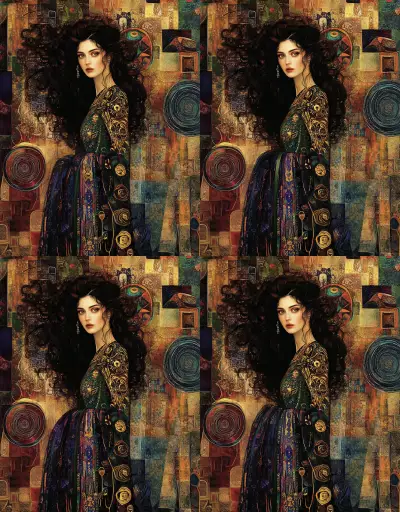Explore the Best AI Image Gallery

Blockchain in Finance: Reimagining Creativity Through Decentralization
The financial world is undergoing a seismic shift, driven by the disruptive force of blockchain technology. Beyond its implications for traditional banking and transactions, blockchains potential to revolutionize the creative industry is gaining significant traction. This decentralized and transparent system offers artists, designers, and creators unprecedented opportunities for ownership, control, and monetization of their work.
Transforming Creative Ownership with Smart Contracts
Smart contracts, self-executing agreements embedded within the blockchain, are poised to redefine creative ownership. Artists can use smart contracts to establish clear terms of sale, licensing, and royalties for their digital assets. This eliminates intermediaries, reduces transaction costs, and ensures that creators receive fair compensation for their work.
Unlocking New Revenue Streams
Blockchain technology enables the creation and trading of Non-Fungible Tokens (NFTs), unique digital representations of ownership for creative assets like artwork, music, and virtual items. NFTs have opened up entirely new revenue streams for creators, allowing them to sell their work directly to collectors and fans without relying on traditional galleries or platforms.
Empowering Collaborative Creation
Blockchain fosters a more collaborative and transparent creative process. Artists can leverage decentralized platforms to share ideas, collaborate on projects, and track contributions in real-time. This fosters a sense of community and shared ownership, empowering creators to work together seamlessly.
Navigating Ethical Considerations
As blockchain technology integrates deeper into the creative industry, it raises important ethical considerations. Issues such as copyright infringement, digital identity verification, and data privacy need careful attention. Establishing clear guidelines and regulations is crucial to ensure responsible and equitable implementation of blockchain in the creative space.
Future Trends Shaping the Landscape
The convergence of blockchain technology and the creative industry is still in its early stages, but several trends are shaping the future:
- Decentralized Creative Marketplaces: Platforms built on blockchain will provide artists with greater control over their work, enabling direct sales to consumers and facilitating fair compensation.
- Tokenized Royalties: Smart contracts can automatically distribute royalties to creators every time their work is sold or used, ensuring ongoing revenue streams.
- Immersive Experiences: Blockchain-powered virtual worlds and augmented reality applications will create new avenues for artistic expression and audience engagement.
- AI-Assisted Creativity: The integration of artificial intelligence with blockchain can enhance creative workflows, enabling artists to explore new ideas and generate innovative content.
Conclusion
Blockchain technology is poised to revolutionize the creative industry, empowering artists, fostering collaboration, and unlocking new revenue streams. While navigating ethical considerations and regulatory challenges is essential, the future of creativity lies in embracing this decentralized and transparent system.








